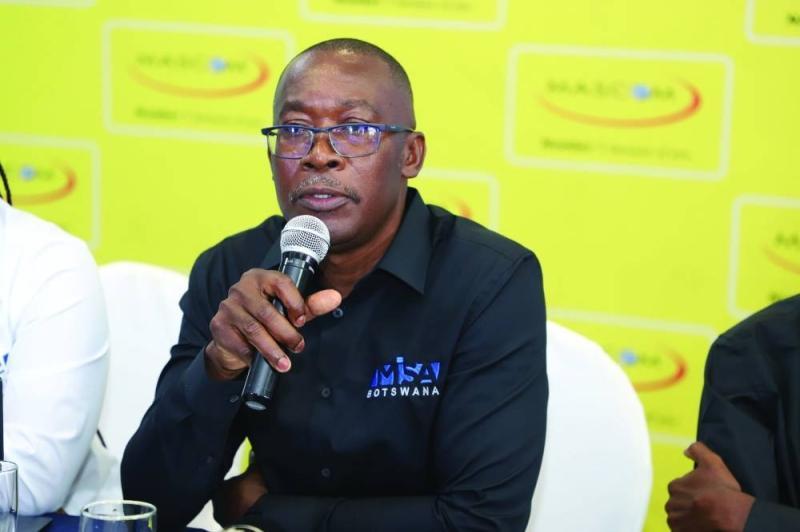Africa-Press – Botswana. July 17, 2025, the Ministry for State President announced that the Daily News, the country’s main government-run newspaper, would reduce its printed editions to just two days a week – Tuesdays and Fridays.
The rest of the week, the newspaper will be available only in PDF format or online. Prior to the digital revolution, Daily News published as many as 80,000 copies each weekday, ensuring nationwide distribution, even in some of the most remote parts of the country where other mainstream media outlets seldom reached. Consequently, while on the surface this looks like a long-overdue embrace of the digital shift, beneath lies a more sobering reality, cost-cutting. The government, like many others around the world, is under financial pressure and looking for ways to trim expenditure including printing costs and staff overtime.
This development should concern all of us, not just those working in the media. It reflects a much larger problem. The shrinking space and sustainability of journalism in Botswana and across the globe. In 2O13, and again just this year, I wrote about the urgent need for newspapers in Botswana to rethink how they should fund journalism. It is no longer sustainable to rely solely on traditional revenue streams. Advertising is down. Print circulation is dwindling. And now even the government, the main backer of a national publication like Daily News, is pulling back. Sadly, not everyone sees this as a crisis. Some people, often those who feel wronged by journalists or who hold grudges against certain publications, are celebrating. They argue that journalism in Botswana has become useless, full of propaganda, fabrications and fake news. They point to missteps by the media and conclude it has lost its way. However, such tendency to make a sweeping dismissal of the media misses the bigger picture. It overlooks the indispensable role that journalism, when done well, plays in democratic life. Thus, informing citizens, exposing wrongdoing and giving voice to the voiceless. In the vacuum left by struggling newsrooms, something else has emerged – social media influencers. Many of these self-styled commentators have no journalistic training, no editorial oversight and little regard for ethics. Yet they are fast becoming the go-to source of “news” for the public. Their popularity is undeniable. But their reliability? That is another matter. In Botswana, we have already seen how this can spiral out of control. Influencers have, with no evidence, accused individuals and politicians of heinous crimes such as ritual killings. Reputations have been destroyed on a whim. The digital mobs they command can ruin careers and lives overnight, all without the burden of fact-checking or accountability. Some are even paid to assassinate characters or push particular agendas under the guise of “content creation.”
This is not unique to Botswana. In the United States, for example, conspiracy theorists such as Alex Jones misled millions with dangerous falsehoods including claims that school shootings were hoaxes but not until courts stepped in and ordered him to pay nearly US$1 billion in damages (Conspiracy theorist’s $49.3 million verdict and the future of misinformation). In Myanmar, fake news on Facebook helped fuel deadly ethnic violence. In Nigeria, false reports on WhatsApp have triggered mob lynchings. The consequences are not virtual. They are real, devastating and sometimes irreversible. Remember the Tonota incident where homes were set ablaze and the Molepolole saga where the Kgotla shelter was reduced to ashes? Notwithstanding, the point here is not to say all influencers are bad or all journalists are saints. However, journalism, true journalism, is built on a foundation of verification, ethics and responsibility. It has structures in place for correction and accountability. That is what separates it from the noise. And in a world awash with misinformation and disinformation, it is exactly what we need more of, not less. Journalism must, however, earn back the trust of the people.
Media houses must rethink their content strategies and business models. They need to be innovative. This means exploring subscriptions, hosting community events, leveraging podcasts, newsletters and video formats and above all, investing in investigative reporting that serves the public interest. They must also double down on integrity, accuracy and transparency. Institutions such as MISA-Botswana and Botswana Editors Forum should be empowered and adequately resourced to strengthen their media literacy programmes. Their initiatives are critical in helping the public understand the value and role of credible journalism in a democracy. With improved media literacy, audiences will be more discerning, thus able to forgive honest mistakes but not tolerate laziness, sensationalism or bias masquerading as fact. Governments, too, have a role to play. Not by muzzling the press or dictating editorial lines but by creating policies that support media freedom and sustainability. Public-interest journalism is not a luxury. It is a necessity.
That is why countries such as the United States still fund outlets such as National Public Radio (NPR) and Public Broadcasting Service (PBS) because without them, vast rural areas would be left in the dark, unable to access reliable, local information. Both are non-profiting and serve as essential alternatives to commercial media, often focusing on local, in-depth reporting and public interest stories that may not be profitable for private media companies. And we, the public, must also do our part. That means supporting quality journalism, demanding better when it falls short and being cautious about what we share online. Do not be quick to dance on journalism’s grave. You may find yourself longing for it when the truth becomes harder to find than ever. In the end, journalism’s future is in all our hands. It is not perfect. It never has been. However, if we let it die, through neglect, apathy or misplaced trust in unverified sources, we will lose one of our most powerful tools for democracy, justice and truth. Let us not wait until it is too late. *Thomas T. Nkhoma is MISA-Botswana national governing council chairperson.
Source: Mmegi Online
For More News And Analysis About Botswana Follow Africa-Press






